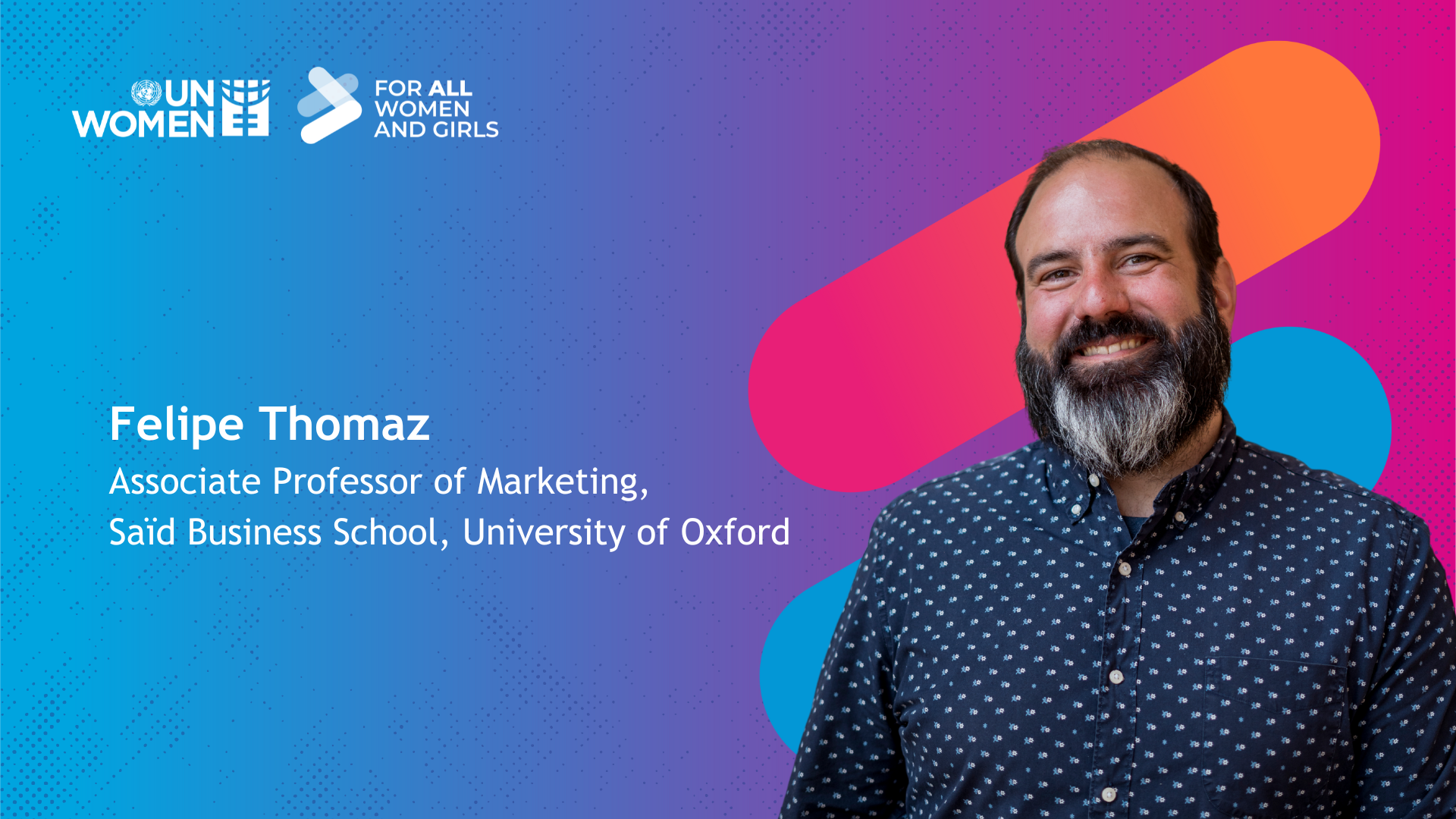Driving change with research
Thomaz’s teaching aims to connect established theory, current groundbreaking research and the realities of marketing practice. In 2024, a new global study led by Saïd Business School and the Unstereotype Alliance proved that inclusive advertising and positive gender portrayals can drive sales and business growth. The Inclusion = Income study was conducted with leading researchers from Saïd Business School and leveraged proprietary data provided by Unstereotype Alliance members Bayer Consumer Healthcare, Diageo, the Geena Davis Institute, Kantar, Mars Incorporated, Mondelez International and Unilever.
Thomaz considers working with the Unstereotype Alliance to create the Inclusion=Income research the most impactful work he and the School have done for advancing the rights of ALL women and girls (so far!).
Why?
“It dismisses the concerns that businesses would harm themselves while being inclusive and shows that good societal outcomes are aligned with good business outcomes”.
Eradicating stereotypes good for business and society
One of several paths to inclusive advertising, is eradicating stereotypes. Thomaz’s sees no other option for the future other than one free from stereotypes: “I see it as a removal of needless friction, as stereotypes create preconceived notions and requirements.” Thomaz highlights the lose-lose nature of stereotypes: “fitting into stereotypes is like having to live normally while also balancing a stack of books on your head, with the threat of being attacked if the books fall.”
“We can expect people to learn to deal with it and eventually forget the books on their heads; or we can remove that expectation/restriction, and let people function without a constantly split attention – focus on doing whatever they do, not how others evaluate them.”
Informing inclusive decision-making
Thomaz approaches stereotypes and their impact on advertising from “the consequence, rather than the mission side”. As a business professor, Thomaz is perpetually interested in improving business performance and now has empirical proof that: “the removal of stereotypes has immediate implications for how companies organize and create their advertising campaigns.”
“We focus on the science, and proof, so managers can make the best possible informed decisions for their brands and companies.” The research conducted by Thomaz, the Unstereotype Alliance and colleagues focuses on highlighting the impact and mechanism for stereotype-free advertising.

